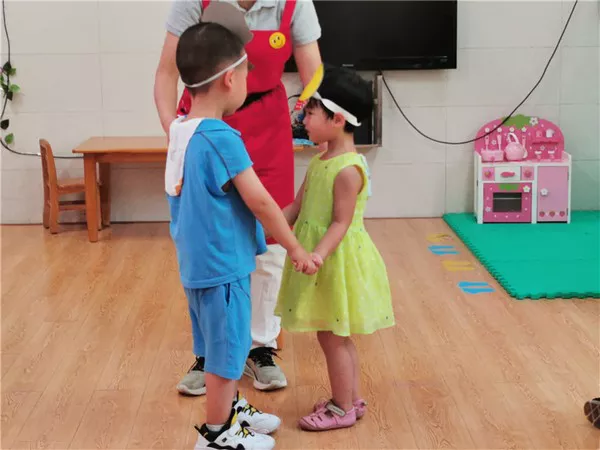The concept of true love has intrigued humanity for centuries, permeating literature, art, and philosophy. It is a timeless question that has sparked debates, fueled romantic pursuits, and prompted introspection. In this exploration, we delve into the complex and multifaceted nature of love, questioning its existence and pondering whether true love is an elusive ideal or an attainable reality.
Defining Love: A Multifaceted Emotion
To unravel the mystery of whether true love exists, it is crucial to first understand the complexity of the emotion itself. Love is a multifaceted and dynamic experience that encompasses a spectrum of feelings, ranging from passionate and romantic to nurturing and unconditional. It can manifest in various forms, including romantic love, familial love, platonic love, and self-love. The diversity of love’s expressions adds layers of complexity to the exploration of whether true love is a singular concept or a nuanced tapestry of emotions.
Cultural Perspectives on Love
Cultural influences shape our perceptions of love, contributing to the diverse interpretations and expectations surrounding the concept. Different societies and historical periods have attributed varying meanings to love, from arranged marriages emphasizing commitment and stability to contemporary notions of passionate, romantic love celebrated in popular culture. Examining love through a cultural lens reveals the fluid and evolving nature of this intricate emotion, suggesting that the quest for true love may be influenced by societal values and expectations.
The Quest for Soulmate: Romantic Idealism
One prevalent notion associated with true love is the concept of finding a soulmate – a partner with whom one shares an unparalleled connection. This romantic idealism, popularized in literature and media, often perpetuates the belief that there is one perfect match destined to complete an individual. The quest for a soulmate is driven by the desire for an extraordinary and transcendent love. However, the validity of the soulmate concept raises questions about whether true love is an inherent part of the human experience or an idealized fantasy.
See Also: Should I confess to my crush?
Navigating Through the Complexity of Relationships
As individuals embark on the journey of love, they encounter a myriad of emotions, challenges, and evolving dynamics. Relationships are inherently complex, shaped by the interplay of individual personalities, life circumstances, and shared experiences. The exploration of true love within the context of relationships requires an acknowledgment of the ebbs and flows, the highs and lows that characterize the intricate tapestry of human connections. Understanding that love is a dynamic force that evolves over time is essential in unraveling its existence.
The Evolution of Love: A Lifelong Journey
Love evolves and transforms as individuals navigate through different stages of life. What may be perceived as true love in the fervor of youth may take on new dimensions with the responsibilities of adulthood and parenthood. The evolution of love suggests that its nature is not stagnant but malleable, adapting to the changing landscapes of personal growth and shared experiences. Recognizing love as a lifelong journey invites contemplation on whether true love is a constant presence or a fluid state that manifests uniquely in each phase of life.
Challenges and Growth in Love
The journey of love is not without its challenges. Conflicts, misunderstandings, and external pressures can strain relationships, prompting individuals to question the endurance of love. However, it is within these challenges that the potential for growth and deepening connection arises. Overcoming obstacles together fosters resilience and strengthens the bond between partners, prompting reflection on whether true love is forged through shared struggles and mutual perseverance.
Unconditional Love: A Paradigm of True Love?
The concept of unconditional love is often considered a paradigm of true love. It implies a love that transcends flaws, mistakes, and imperfections, embracing the entirety of an individual. Unconditional love exists in various relationships, including the bonds between parents and children, close friends, and romantic partners. Exploring whether unconditional love can be deemed as true love invites contemplation on the capacity of humans to extend boundless acceptance and compassion to one another.
The Impact of Expectations on Love
Expectations play a significant role in shaping our perceptions of love and its authenticity. Cultural narratives, societal norms, and personal beliefs contribute to the creation of expectations regarding what true love should look like. These expectations may lead to a perpetual quest for an idealized version of love, potentially overshadowing the genuine and nuanced expressions of affection that exist within relationships. Examining the impact of expectations prompts introspection on whether true love is hindered or enhanced by predefined notions.
Self-Love: A Crucial Element in the Equation
In the pursuit of understanding true love, it is essential to recognize the role of self-love. The capacity to love oneself, with all strengths and vulnerabilities, sets the foundation for healthy and fulfilling relationships with others. Self-love is not narcissism but a profound acceptance of one’s worth and an acknowledgment of the need for personal growth. Exploring the connection between self-love and true love underscores the interconnectedness of internal and external expressions of affection.
Scientific Perspectives on Love
Beyond the realm of emotions, scientific research offers insights into the physiological and neurological aspects of love. Studies on the brain’s response to love reveal the release of neurotransmitters and hormones associated with pleasure and attachment. Exploring the biological underpinnings of love raises questions about whether true love has measurable markers or if its essence lies beyond the scope of scientific analysis. The convergence of scientific and emotional perspectives adds layers to the ongoing quest for true love.
Coping with Love’s Imperfections
As individuals grapple with the complexities of love, it becomes evident that imperfections are an inherent part of the human experience. Love, like any other aspect of life, is prone to imperfections, misunderstandings, and evolving dynamics. Acknowledging the imperfections in love prompts a reflection on whether true love can coexist with the inevitable flaws and challenges that characterize human connections.
Cultural Expressions of Love: Literature, Art, and Music
Throughout history, love has been a recurring theme in literature, art, and music. Cultural expressions of love, whether in Shakespearean sonnets, timeless paintings, or melodic compositions, encapsulate the profound and enduring nature of the emotion. Examining cultural representations of love invites contemplation on whether these artistic expressions serve as testaments to the existence of true love or if they are romanticized interpretations that fuel an eternal quest.
The Role of Time in Love’s Maturation
Time plays a pivotal role in the maturation of love. Relationships that withstand the test of time often undergo transformations, evolving into deeper and more nuanced connections. The longevity of love prompts contemplation on whether true love is a product of enduring commitment, shared experiences, and the resilience that comes with the passage of time. Understanding the role of time in love invites individuals to reflect on the potential for lasting and meaningful connections.
The Subjectivity of Love: An Individualized Experience
The subjectivity of love is a crucial aspect that adds layers of complexity to the exploration of its existence. Each individual’s experience of love is unique, influenced by personal values, past experiences, and emotional needs. The subjective nature of love prompts contemplation on whether true love is a universal concept or a deeply personal and individualized experience that defies standardized definitions.
Cultivating Love: A Continuous Journey
Rather than viewing true love as a destination, it may be more meaningful to perceive it as a continuous journey of cultivation. The process of nurturing love involves ongoing efforts, mutual understanding, and a commitment to growth. The recognition that love is not a static state but a dynamic and evolving experience prompts individuals to actively participate in the cultivation of meaningful connections.
Conclusion
The question of whether true love exists remains a timeless and subjective inquiry that transcends cultural, societal, and individual boundaries. Love, in its myriad forms, continues to be a source of inspiration, joy, and introspection for humanity. As individuals navigate the complexities of relationships, grapple with expectations, and embrace the imperfections of love, the quest for true love becomes an ongoing exploration rather than a definitive destination. Whether true love is an elusive ideal or an attainable reality, the essence of the journey lies in the profound and transformative nature of the emotions experienced along the way.
Related topics:




























